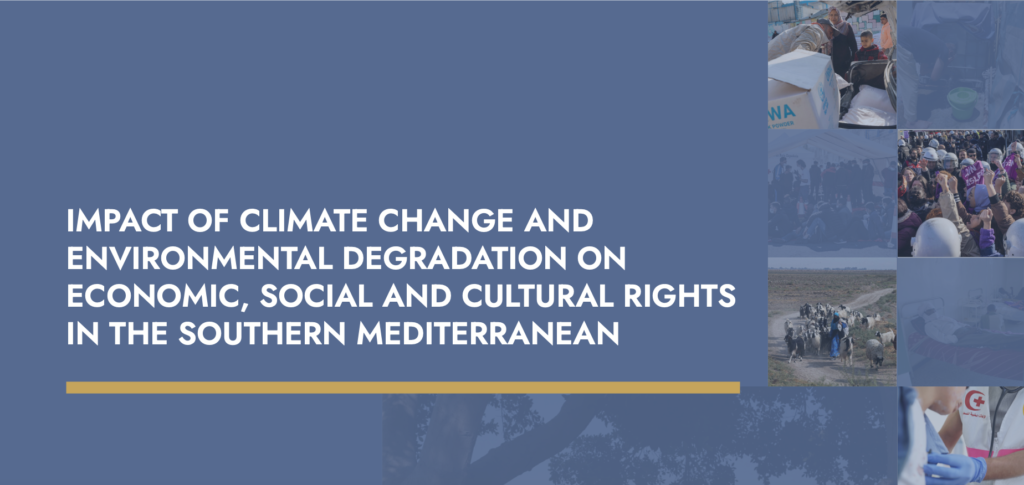Climate change is an extremely urgent issue in the Middle East and North African region. Due to its geography and climate, the region is particularly vulnerable to climate change and environmental degradation and extreme weather events are becoming all the more common. The region is the world’s most water-stressed with over 60 per cent of its population suffering from insufficient access to drinkable water. Food insecurity is staggering with food systems directly impacted by severe climatic events.
Due to their reliance on imports, MENA food systems are extremely vulnerable to global shocks caused by weather extremes. Failure to redress environmental degradation including pollution continues to be a major threat to public health, especially in a region that is one of the wealthiest in fossil fuels in the world.
While the United Nations acknowledged that “living in a clean, healthy and sustainable environment” was an independent right, the implications of climate change and environmental degradation also violate a range of other human rights, including economic, social and cultural rights.
In a recent report, EuroMed Rights and independent expert Sarah Zaarour show how climate change impacts the right to water and sanitation, the right to adequate food and the right to health amongst other rights. The compounded effects of climate change and environmental degradation impact are felt more by the most vulnerable groups in society, in particular in a region with no universal life cycle based social protection.
Weather extremes severely impact livelihoods and employment.
With the start of COP28, it is essential to call on governments from the region to take action towards a just transition. They must ensure that civil society can contribute to that agenda without fear of reprisals. At the same time, the EU, member states and the global civil society must apply their leverage to assist in these objectives and act on the fact that high CO2 emitters bear responsibility for the impact endured by low emitters like countries in the MENA region, for example through compensatory schemes including loss and damage funds. Finally, international institutions, including international financial institutions, must support and encourage the setting up of social protection floors and the establishment of human rights based sovereign food systems.
Find the report here and (re)watch the webinar organised by EuroMed Rights with contributions from IHD – Human Rights Organisation, the Global Initiative for Economic, Social and Cultural Rights and the Center for Egyptian Women’s Legal Assistance.

